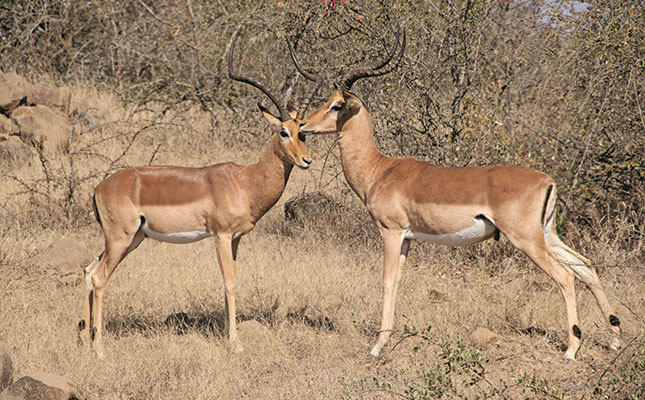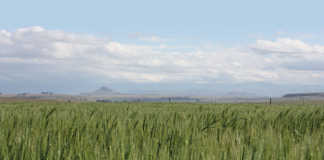
Photo: FW Archive
There are concerns that cases of wildlife poaching in Botswana could increase, following the government’s decision to allow game farming on land that has no security or fencing to control the movement of wild animals.
In its bid to encourage local participation in agritourism, the Botswana government has amended its agricultural policy to allow arable and livestock farmers to keep wildlife on their farms.
Following the amendment, the country’s Department of Wildlife and National Parks announced the donation of “start-up wildlife stock” to farmers who decided to venture into farming of species such as impala, gemsbok, zebra, eland and warthog.
According to a recent statement by the department, the animals would become farmers’ property after successful breeding and donating offspring equivalent to the number of animals initially received as breeding stock to other authorised farmers.
The director of PATH, a wildlife conservation organisation operating in Botswana, Dr Pieter Kat, said the initiative might not benefit small farmers and warned that it could encourage an increase in cases of poaching in the country due to a lack of fences.
Animals that jump, such as eland, needed to be contained by fences of up to 2,4m in height, he said.
“For digging animals like warthog, fences need to be reinforced low down and even underground. No such requirements are listed for Botswana. Anyone with a large landholding can now come and collect their start-up wildlife stock.”
According to Kat, transportation of animals from a collection site to a farm should be conducted by specialised personnel and vehicles. “No such requirements are listed. The animals are picked up from designated points by the farmers themselves,” he said.
Kat added that the programme would attract large-scale farmers only, as small-scale farmers could not afford the substantial investment associated with the feeding and keeping of animals such as eland, before actually owning them.
“While the wildlife department might want to stimulate game farming, this initial investment long before any returns is way beyond the means of any citizen smallholder. So, the benefit as usual goes to the large landowners or big farmers with [large] capital [resources],” he said.
In an interview with Farmer’s Weekly, small-scale farmer Moemedi Sefako said many smallholder farmers in the country would apply for permits to undertake game farming under the current initiative, but could fail to realise benefits.
“Small farmers may [also] fail to properly take care of the animals due to scarce water resources during drought periods,” he added.













